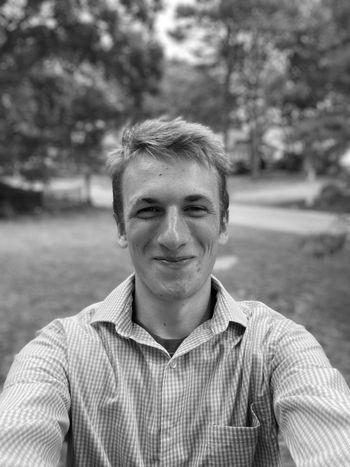Anti-Semitic incidents and pro-Palestinian advocacy at UCSF hospital spark controversy
A neurologist at UCSF has raised concerns about pro-Palestinian advocacy and alleged anti-Semitic incidents affecting Jewish patients and staff, claiming their complaints have been dismissed by the administration.
One patient, who was Jewish, claimed he heard chants outside his hospital window like, 'Intifada, Intifada' and 'End the Israeli occupation.'
Doctors at the University of California, San Francisco Medical Center have raised concerns about pro-Palestinian advocacy and alleged anti-Semitic incidents affecting Jewish patients and staff, claiming their complaints have been dismissed by the administration.
Dr. Gil Rabinovici, an Israeli-American neurologist at UCSF, told the Jewish Journal about anti-Israel displays and advocacy at the hospital.
“We’ve heard chilling stories from patients that, in their most vulnerable states, receiving treatment for life-threatening diseases, they were exposed to antisemitic hatred, political symbols, and negative comments,” Rabinovici explained.
[RELATED: ADL ‘deeply disappointed’ in Harvard’s decision to cave to anti-Semitic demands]
One patient, who was Jewish, claimed he heard chants outside his hospital window like, “Intifada, Intifada” and “End the Israeli occupation.”
“There were doctors and medical staff wearing watermelon pins, ‘Free Palestine’ pins and other political expressions,” Rabinovici stated. “Jewish patients, some with relatives murdered, kidnapped, or missing since Oct. 7, were treated by these doctors.”
“I’ve heard of people worried about being assigned certain doctors who are very vocal and antisemitic on social media,” Rabinovici continued. “I can’t say we have evidence of anyone receiving discriminatory treatment and I pray to God that’s not the case, but we have certainly heard from patients who were exposed to this. They were very concerned about receiving their treatment at UCSF.”
Rabinovici said that the workplace was generally accepting and inclusive to minorities, and that he never would have expected that Jews or Israelis could be an exception.
“It was always an exceptional workplace that valued inclusivity for everyone,” Rabinovici concluded. “I assumed that included Israelis, but I was shocked to find that when we complained about this very hostile environment, our complaints to the Office for the Prevention of Harassment and Discrimination were completely dismissed.”
Another individual at UCSF, Yarden Golan, who is a postdoctoral fellow at the school, corroborated Rabinovici’s evidence.
“It is anti-Zionism and clear antisemitism, including support for terrorist acts,” Golan said. “Most of my criticism is of the university for not standing up to clear cases of antisemitism, for not protecting employees even in clear cases of antisemitism.”
UCSF is not the only school in the UC system that has been involved in controversies surrounding anti-Semitism.
The Anti-Defamation League (ADL) released a study on July 11 that found that anti-Semitic incidents had increased at multiple UC campuses since the Oct. 7 attack on Israel perpetrated by Hamas terrorists.
“In defiance of our expectations, antisemitic attitudes among students increased after Oct. 7 and may account for the sense of isolation and hostility that many Jewish students and faculty reported on various University of California campuses in the weeks and months after the onset of the Israel-Hamas war,” said UC Irvine Professor Jeffrey Kopstein.
“The data indicates that campuses mirror and magnify the problem of antisemitism in the United States today,” Kopstein concluded.
Campus Reform has contacted the University of California, San Francisco for comment. This article will be updated accordingly.

